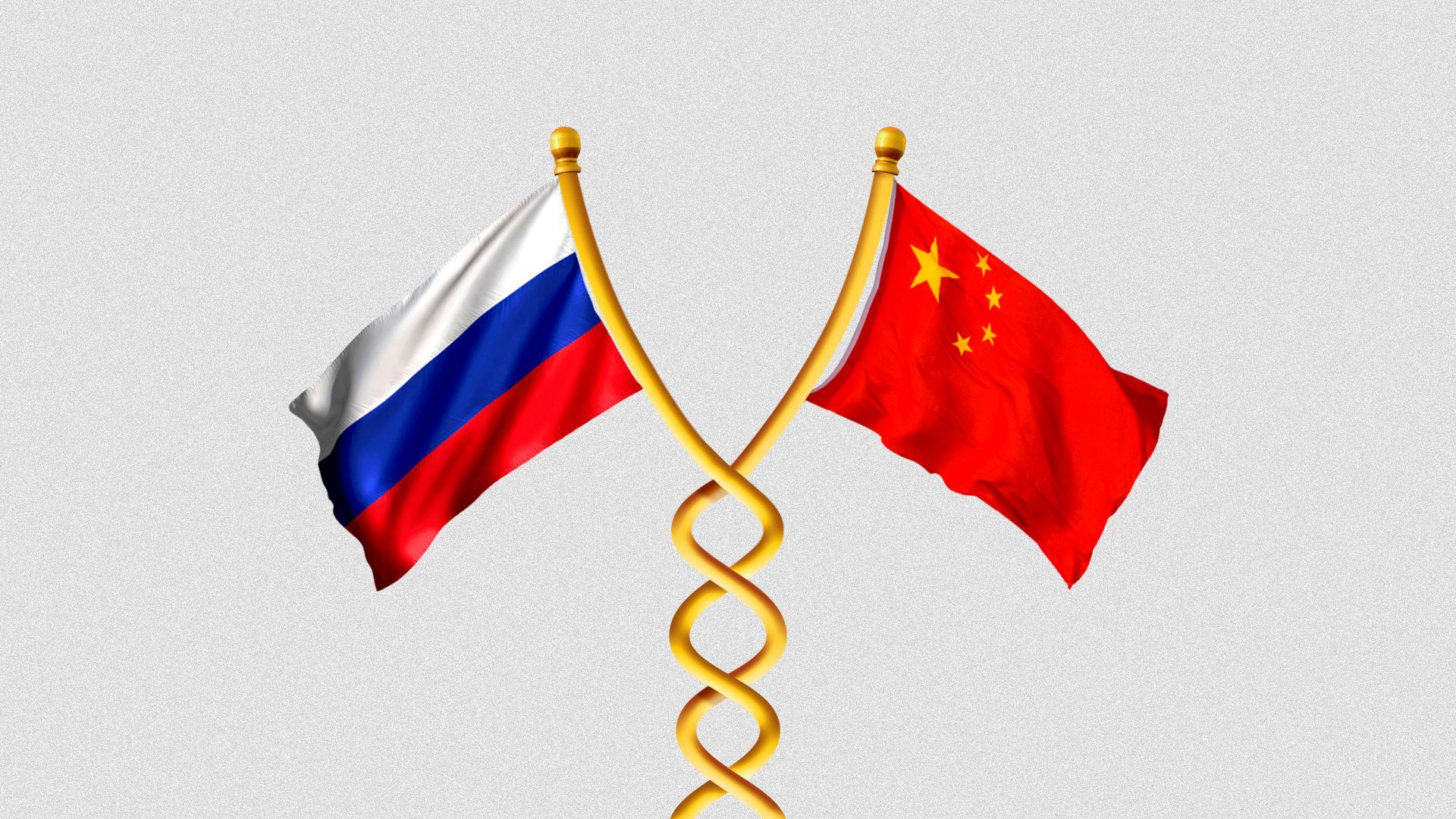Washington wakes up to Beijing-Moscow alignment
Add Axios as your preferred source to
see more of our stories on Google.

Illustration: Annelise Capossela/Axios
The Ukraine crisis is forcing Washington to grapple with Russia's increasingly close relationship with China.
The big picture: Russia and China aren't full-fledged allies, experts say, but they have been coordinating their economic and security interests with greater clarity over the past several years.
- The two countries have smoothly navigated their competing interests in their shared backyard of Central Asia — and the Chinese government has aligned itself with Russia on Ukraine.
- "I don't see them as joining forces, but I see them as presenting parallel challenges to the West," said Maria Repnikova, assistant professor in global communication at Georgia State University.
Driving the news: Chinese President Xi Jinping said earlier this month in a joint statement issued alongside Russian President Vladimir Putin that China "opposed the further expansion of NATO" — demonstrating support for Russia's demand that Ukraine not be admitted to the mutual defense pact.
- Xi's support for Putin amid the Ukraine crisis has led a growing number of observers in Washington to warn of a Russia-China "alliance of autocracies," an "axis of authoritarianism," an "axis for tyranny," and other similar formulations expressing alarm about the growing affinity between Beijing and Moscow.
Reality check: Such concern is simultaneously belated and somewhat overblown, experts say.
- "The general trend line was there" even before Xi formally echoed Putin's rhetoric about NATO, Alexander Gabuev, chair of the Russia in the Asia-Pacific Program at the Carnegie Moscow Center, told Axios.
- But the ties between Moscow and Beijing don't rise to the level of a true alliance, and are more accurately described as "transactional" and a "marriage of convenience," Gabuev said.
- "Russian elites might say they are close to China but they mostly send their children to the U.S. or Europe. Chinese elites also send their kids to western education systems, not to Russia," Repnikova said.
The backstory: A shortage of people in the U.S. who specialize in both Russia and China has led to a consistent lack of public discussion of the growing bilateral relationship.
- In think tanks, academia, and journalism, regional specialists have tended to be siloed away from each other. That's especially true for those specializing in Russia and China, countries long viewed in the U.S. as fairly niche interests that require a major time investment to learn the language.
- Even as late as 2015, senior U.S. officials still dismissed the importance of the China-Russia relationship, Gabuev said. That kind of blind spot is "partly rooted in the separation of the Russia watching and China watching system" in the U.S.
- Similar divisions in the Russian and Chinese systems can create an information loop, exacerbating the problem.
What to watch: The Biden administration believes Beijing is gauging the U.S. response to Russian threats to Ukraine as a proxy for how America would deal with more Chinese aggression against Taiwan.
